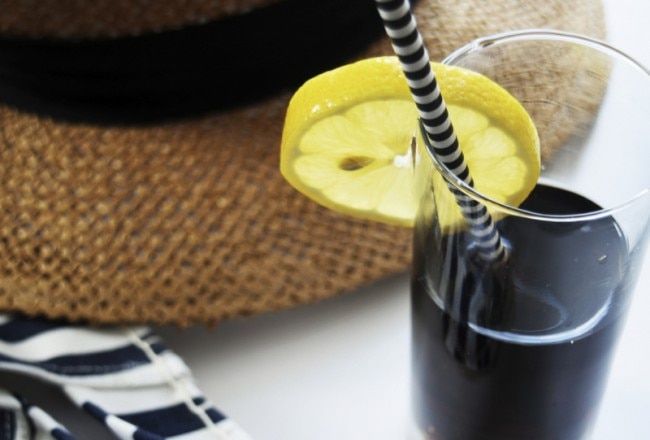First came kombucha, then chia seeds, then cold-pressed juices. Now the latest healthy drink darling is—get ready for it—activated charcoal juice. It’s black, bold, and said to be beneficial (to your bowels). It’s officially a thing—a cleansing thing, to be precise. But just why is black the new green?
First off, the research on activated charcoal as a wellness booster is scant. It is true, however, that activated charcoal, also called activated carbon, is extremely porous and adsorbent. Note the spelling nuance: Adsorbent differs from absorbent in that rather than absorbing a substance into itself, the substance gets accumulated on the surface. Adsorbent is widely used in industrial applications like activated charcoal, water purification and synthetic resins as well as in clinical emergencies like overdoses or poisonings. Since activated charcoal can treat poisonings, proponents of charcoal juice extrapolate that highly qualified to draw toxins out of the body as well.*
The problem is that charcoal is an indiscriminate adsorber—it binds to everything, including nutrients. So it removes the bad stuff (pesticides, VOCs) along with the good stuff (vitamins, amino acids, minerals, fats). This is why brands warn users that medications should be taken at least 30 minutes before or two hours after consuming charcoal juice, otherwise they can be rendered ineffective.
But many people equate charcoal’s binding properties as proof of its effectiveness (best not to stray too far from a toilet after ingesting). According to Juice Generation, a juice company, juices that contain charcoal are quickly becoming the most popular sellers, with eager consumers chugging them in the hopes of easing hangovers, clearer skin, better breath and improved digestion.*
There’s no evidence to support the hangover claim, since charcoal doesn’t excel at binding to alcohol. And evidence that charcoal clears up skin is anecdotal at best, as no studies have been done. Finally, many nutrition experts advise against daily consumption, or any consumption even, of charcoal, citing little if any evidence for the health benefits of drinking activated charcoal unless you’ve been poisoned.
If you want to flush out your system, a diet high in soluble and insoluble fiber sources such as whole grain brans, fruits and vegetables can help detox in the same way. It’s a lot gentler on your body, and a lot easier going down. If you still want to try out the latest detox fad, feel free to give it a whirl. Since charcoal is an inert substance, occasional use probably won’t hurt you. Whether it helps with detoxing or not is yet to be determined.
*These statements have not been evaluated by the FDA. These products are not intended to diagnose, treat, cure or prevent any disease.

